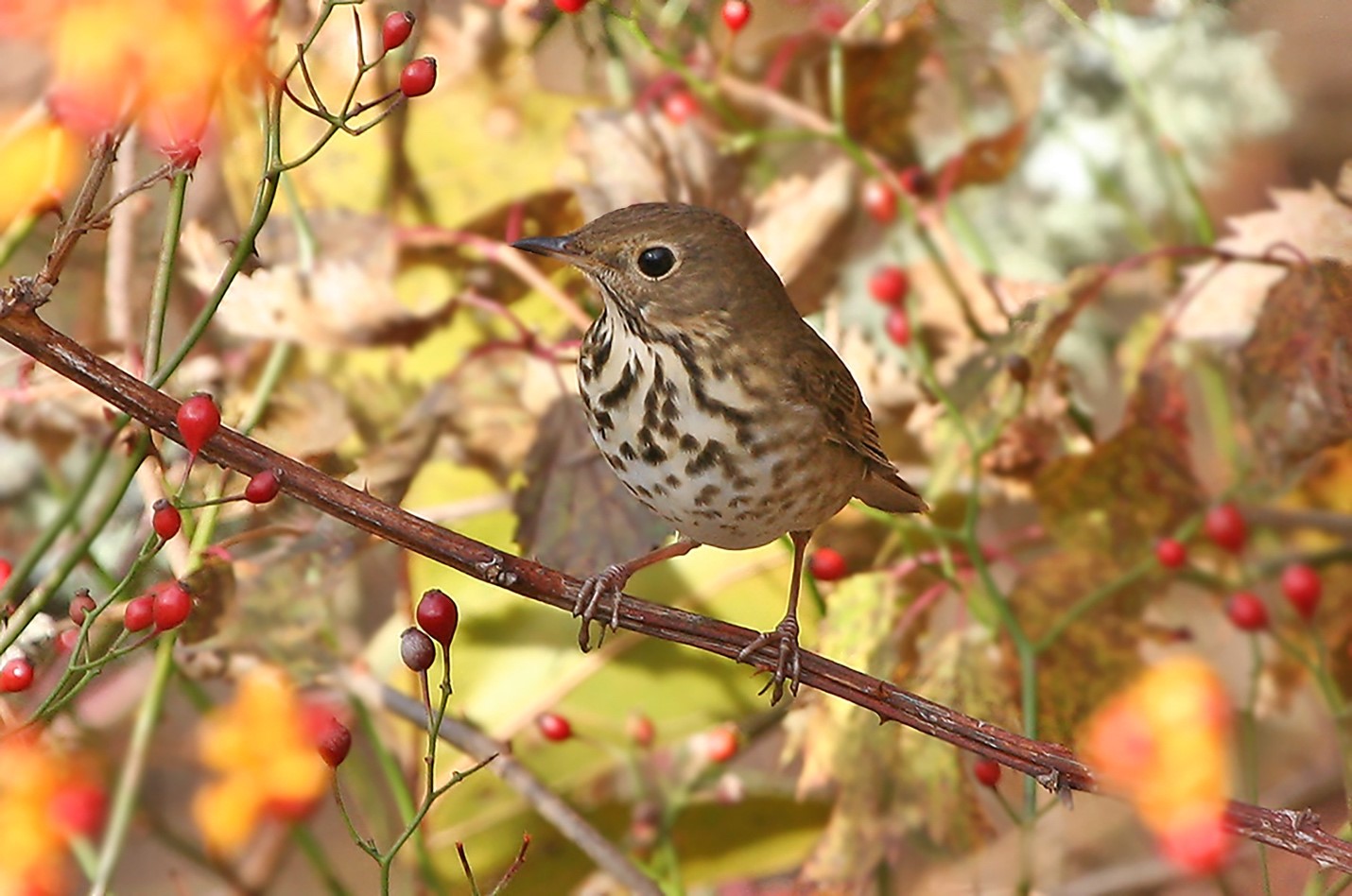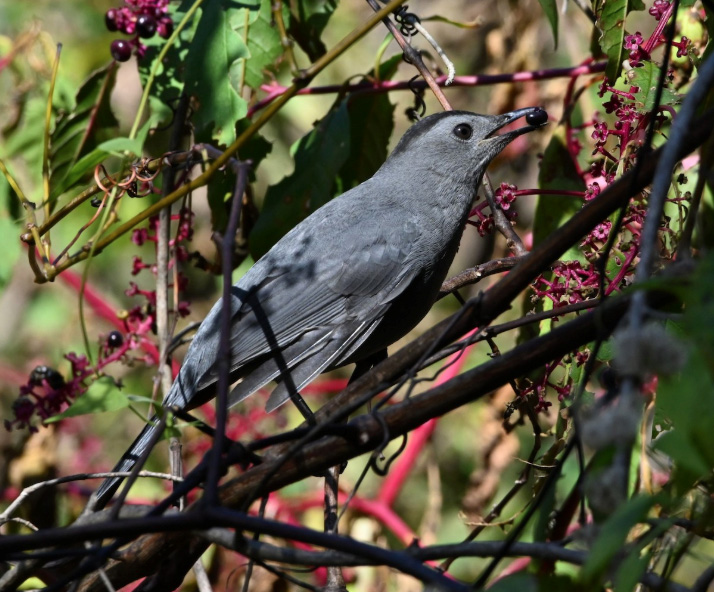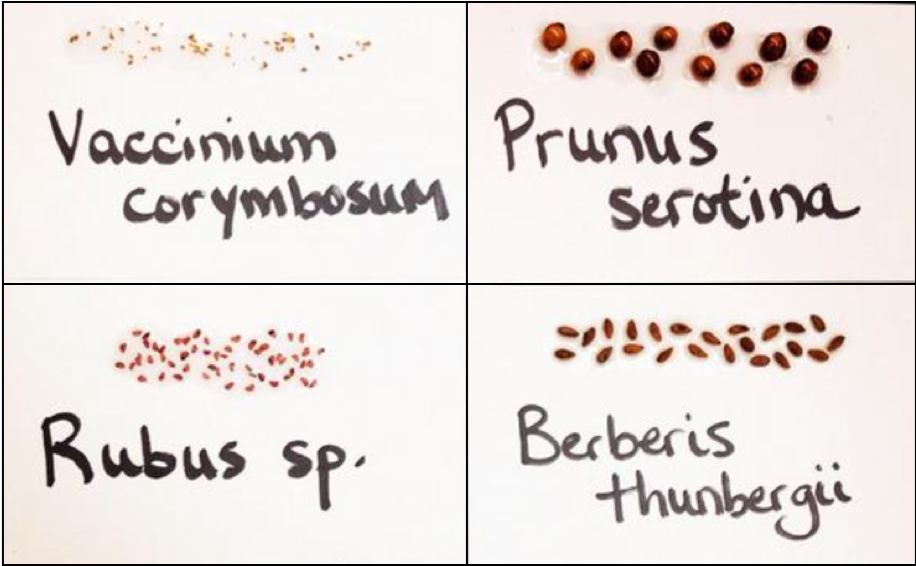
Trevor Lloyd-Evans
Director of Landbird Conservation
New England is famous for its regional cuisine of clam chowder, baked beans, and lobster. It turns out New England’s birds also prefer local food. In a recent study published in the journal Biological Conservation, researchers found that birds migrating through New England in the autumn, such as Gray Catbirds, Hermit Thrushes, and Baltimore Orioles, prefer native fruits, like blueberries, black cherries, and raspberries, even in late-autumn when fruits of invasive species like Asian bittersweet, Japanese barberry, and multiflora rose dominate the menu.
In this study, scientists investigated whether fruits from increasingly-abundant invasive plant species might begin to take the place of native fruits in the diet of birds. The research was carried out at Manomet, a long-term bird observatory and common stopover site for migratory birds near Plymouth on the coast of Massachusetts. By monitoring fruit ripening every week, they found that native fruits are abundant in the late summer and early autumn, but invasive fruits begin to dominate the landscape in mid-October when birds are still migrating through the region. Trevor Lloyd-Evans, Director of Landbird Conservation at Manomet and one of the co-authors, comments, “We knew now that invasive fruits were abundant at the end of the autumn migration period, but would birds actually eat those invasive fruits?”
To see what birds were eating, the researchers collected bird poop from over 450 birds captured in mist nets, placed in cloth bags, and later released after weighing and banding by bird banders at Manomet during the course of two field seasons. Back in the lab, they sorted through the samples to identify seeds based on size, shape, and color. They discovered that most birds, and especially the abundant Gray Catbirds, ate almost entirely native fruits, even late in autumn when native fruits were scarce and invasive fruits were abundant. Amanda Gallinat, the lead researcher from Utah State University and Boston University, notes, “We were surprised to find blueberry seeds in the bird poop late in the season when blueberries in the field were either past ripe or long gone.” The researchers were equally surprised that the birds were almost completely ignoring the abundant fruits of invasive plants such as multiflora rose, privet and Japanese barberry.
Richard Primack, a Boston University professor and third co-author, adds, “There are reports that invasive fruits have low nutritional quality, so we think this preference for native fruits may simply reflect health-conscious birds.” By opting for the native superfoods, like blueberries, raspberries, and black cherries, during migration, these birds leave the low-quality invasive fruits behind for overwintering birds to eat when nothing more appetizing remains. Due to climate change, birds such as American Robins and Northern Mockingbirds are more likely to remain in New England over the winter and make these invasive fruits part of their winter diet.
The article, “Can invasive species replace native species as a resource for birds under climate change? A case study on bird-fruit interactions”, can be accessed online: https://www.sciencedirect.com/science/article/pii/S0006320719314946?via%3Dihub.








 Back to all
Back to all